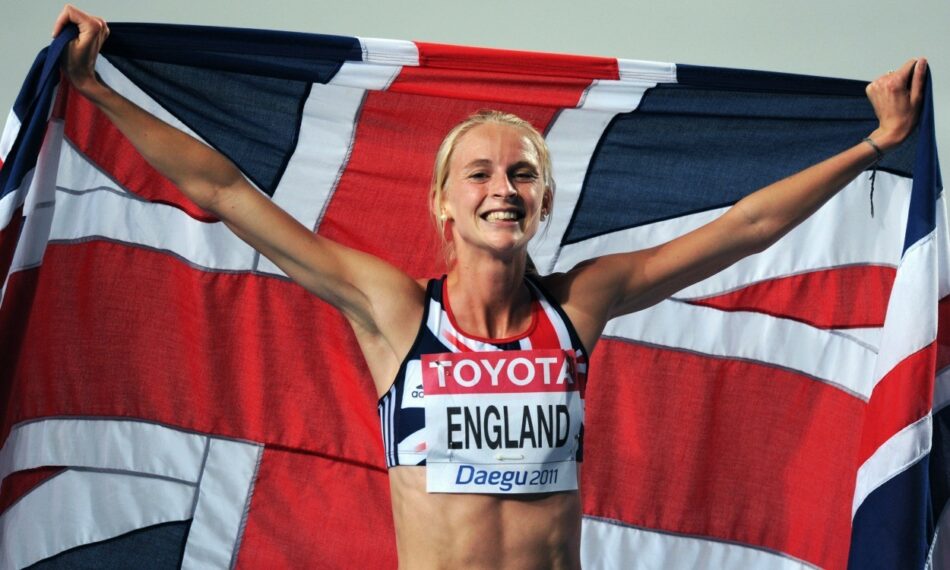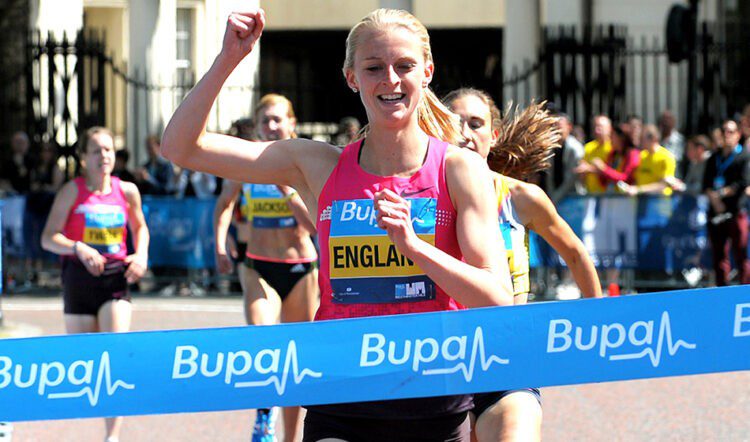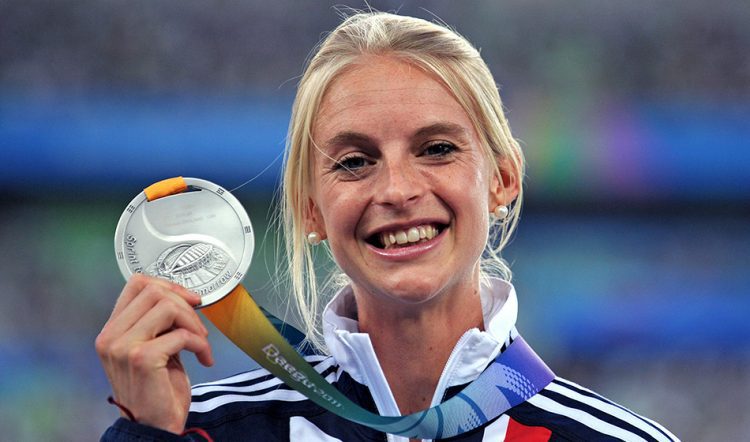
Hannah England chats about life after competing, the art of commentary and how those in the thick of the action might help themselves
Switching from the track to the commentary box has proved to be a smooth transition for Hannah England to make. The former middle distance international, a 1500m silver medallist at the 2011 World Championships, might have been retired since the end of 2019, but she is using the lessons she learned from her life in the thick of top level competition to progress in her second career.
The common thread running through both is that preparation is key but, rather than logging training miles and sessions, many of her working hours are now taken up by gathering information and insight on the athletes about whom she will be commentating.
The now 38-year-old is no stranger to facts, figures, spreadsheets and highlighter pens, given that she used to organise and research everything about the training camps her group would go on, and admits with a ready laugh to “planning the fun out of any holiday”. As she chats to AW in Oslo ahead of a commentating stint at the Bislett Games, it’s perhaps no surprise that she chose this route.

“The resilience and the work ethic that you develop as an athlete can go into any profession,” she says. “A lot of my work is alongside ex athletes and you can see that ability to do an awful lot of work and take pride in your work. All those elements that drew you into a career in athletics, you don’t leave them behind – wanting to be a perfectionist, wanting to do a good job, having high standards and all of that. It lends itself well to any career, but it does lend itself to commentary.”
England first picked up the microphone as a freshly retired athlete, and with the sport just starting to emerge from the shadow of Covid. Her first taste of “real work”, as she calls it, came when she took a job with former Beijing Olympians Andrew Steele and Tom Lancashire with a company that did Covid testing in the Premier League. By 2022, she was able to go full-time at describing the action, maintaining a connection with the sport she loves.
“I have always been a fan of the sport, all the different events and what’s going on outside of my performances,” she says. “I can still be involved with athletics without it being taken away by an injury, or selection or anything like that and I just feel so fortunate to still have this interaction with it.”
Being that one step removed from the action, she insists, hasn’t changed how she views the sport and she adds: “I still feel very invested in the athlete perspective of it. I still feel very aligned, not physically but emotionally, with the athletes and as part of the joy of doing the commentaries I can hopefully try and bring that to life.

“There’s so much hard work that goes into these performances, and I think it’s easy for a viewer at home to kind of flippantly think: ‘Oh, it’s just about this race’ but you’re trying to bring that kind of respect to what these athletes do. There are thousands of hours that go into a performance so I try to bring all those experiences I had as an athlete into the commentary.”
Telling the stories behind the athletes is always a key consideration, too, and the motivation for England’s new broadcasting project, the launch of the Podium Athletics podcast which she hosts alongside fellow athletics commentators Richard Newman and Katie Smith.
It is a frustration that some of the current crop of athletes don’t help themselves when it comes to connecting with the wider public. England recently conducted a workshop with some of the athletes who are now being represented by former international race walker Tom Bosworth, and says the aim was: “To try and give them a bit of a heads up, saying: ‘This is all I know about you and if you want me to say something different, you need to tell me something different or show me something different on your social media or in some way.
“I think, annoyingly, that’s inconsistent, because some athletes can lean into that and they champion it but there’s also this cohort of athletes that have this slick social media with no information.

“I think athletes are a lot more willing to share themselves with social media than my generation was but I think there is still a disconnect between them realising: ‘We can control what the media says about us. We can put stuff out there, we can be more than just our results’. That can help the sport and help them as individuals.”
Helping those individuals has long been at the forefront of England’s thinking, too. During her time as an athlete, she was also an advocate and the first chair of the UK Athletics Athletes’ Commission that was formed in 2017. Despite the best efforts of these groups, however, she does wonder if the powers at be are always paying attention.
“I do a lot of work in gymnastics as well and I think every athlete voice group is ultimately limited by whether the organisation wants to listen to that,” she says. “They can be as well organised and as proactive as possible, but if no one wants to listen to them, it’s not going to go anywhere.
“At the moment, there is good stuff going on with the World Athletics Athletes’ Commission and the European Athletics one, but I think it always depends on whether the bosses want to listen. [The governing bodies] should be using them as a sounding board, not just waiting for a complaint. There should be a mutual respect that you can go to each other.”
There is a clear respect from England when she speaks of her commentating colleagues. There is excitement in her voice, too, as she looks ahead to a World Championships summer and a chance to keep honing her new craft.
“I think we are so spoiled with a great crop of commentators and I’ve been really lucky to learn from them,” she says. “They’ve been incredibly generous with their time and their experience. I’m really detail driven, like I was as an athlete and like I was at uni but there was a lesson I learned quite early on that Steve Cram was really helpful with.
“He told me: ‘You need to use the stats to support what’s going on [but not make it all about the stats]’. If you just say all these numbers, that’s not interesting to someone at home. But all those guys that are great at this job, they watch the action and they bring you along with them. You’re not just trying to offload knowledge.”







